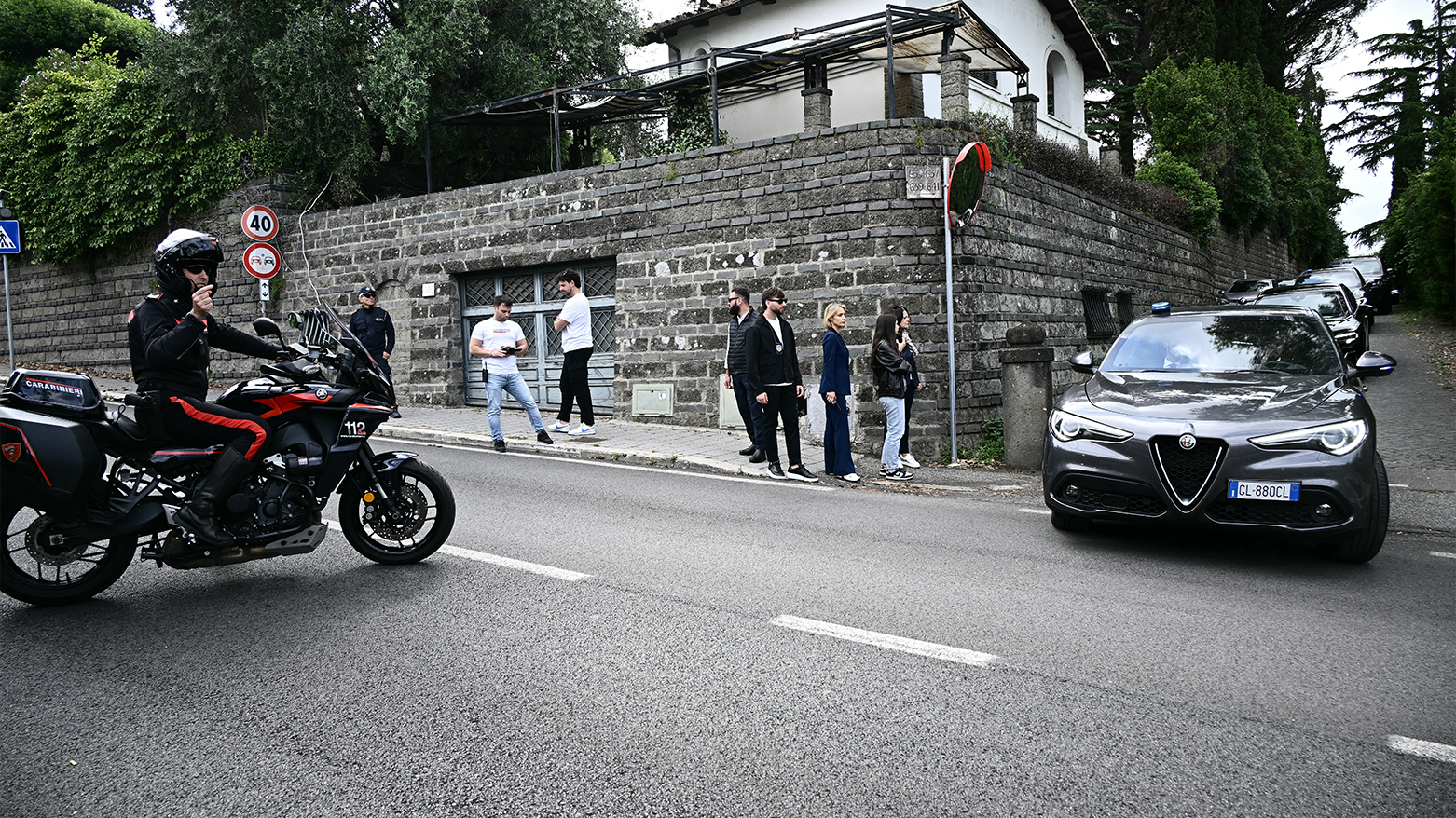Treading a Thin Line: U.S.–Iran Nuclear Talks Yield ‘Some but Not Conclusive’ Progress
"The negotiations are too complicated to be resolved in two or three meetings," said Araghchi, who leads the Iranian negotiating team in the talks mediated by Oman.

By Kamaran Aziz
ERBIL (Kurdistan24) – The fifth round of U.S.–Iran nuclear negotiations concluded in Rome on Friday with “some but not conclusive progress,” according to Omani mediators, as both sides remain entrenched in decades-old disagreements over uranium enrichment and nuclear transparency.
As reported by Reuters, the latest round of talks—mediated by Oman—saw Iranian Foreign Minister Abbas Araghchi and U.S. Middle East envoy Steve Witkoff lead delegations in what was described as one of the most “professional” exchanges to date. However, a breakthrough remains elusive.
Omani Foreign Minister Badr Albusaidi wrote on X (formerly Twitter) that, while the session did produce incremental steps forward, major obstacles remain. “We hope to clarify the remaining issues in the coming days, to allow us to proceed towards the common goal of reaching a sustainable and honourable agreement,” he said.
The fifth round of Iran US talks have concluded today in Rome with some but not conclusive progress. We hope to clarify the remaining issues in the coming days, to allow us to proceed towards the common goal of reaching a sustainable and honourable agreement.
— Badr Albusaidi - بدر البوسعيدي (@badralbusaidi) May 23, 2025
Araghchi echoed this cautious optimism, telling Iranian state TV that the discussions were complex and that further negotiations were necessary to navigate the deep divides that remain. “We’ve just completed one of the most professional rounds of negotiations,” he noted.
Iranian Foreign Minister also said its discussions with the United States over its nuclear programme were "complicated", as the fifth round of talks concluded in Rome.
"The negotiations are too complicated to be resolved in two or three meetings," said Araghchi, who leads the Iranian negotiating team in the talks mediated by Oman.
According to Reuters, a source close to the Iranian team confirmed that both sides plan to meet again, although the date and venue have yet to be determined. No immediate statement was issued by the U.S. delegation following Friday’s session.
The stakes are high for both sides. President Donald Trump, now in his second term, seeks to dismantle Iran’s capacity to produce nuclear weapons—a move aimed at averting a regional arms race and protecting allies, notably Israel. For Tehran, the objective remains the removal of crippling economic sanctions that have severely impacted its oil-dependent economy.
Both nations have taken uncompromising stances in public. Ahead of the talks, Araghchi wrote on X: “Zero nuclear weapons = we Do have a deal. Zero enrichment = we do NOT have a deal. Time to decide.”
Set to travel to Rome for 5th round of indirect talks with the United States.
— Seyed Abbas Araghchi (@araghchi) May 22, 2025
Figuring out the path to a deal is not rocket science:
Zero nuclear weapons = we DO have a deal.
Zero enrichment = we do NOT have a deal.
Time to decide...
As reported by Reuters, Washington’s latest position—voiced by U.S. Secretary of State Marco Rubio—aims to allow Iran access to civilian nuclear energy, but not enrichment capabilities. Rubio acknowledged that striking such a balance “will not be easy.”
Meanwhile, Iran’s Supreme Leader Ayatollah Ali Khamenei dismissed demands to halt uranium enrichment as “excessive and outrageous,” casting further doubt on the likelihood of a swift resolution.
Key sticking points include Iran’s refusal to export its stockpile of highly enriched uranium and its unwillingness to enter talks over its ballistic missile program. While Iran has signaled a willingness to accept limits on enrichment, it continues to insist on “watertight guarantees” that the U.S. will not abandon a future accord, as it did in 2018.
Trump’s withdrawal from the 2015 Joint Comprehensive Plan of Action (JCPOA) and the subsequent reimposition of sweeping sanctions led Tehran to ramp up uranium enrichment well beyond the original deal’s limits. In response, Iran has asserted its sovereign right to develop nuclear capabilities for peaceful purposes.
Wendy Sherman, the former U.S. undersecretary who led negotiations for the 2015 deal, told Reuters that Iran sees enrichment as a symbol of sovereignty. “I don’t think it is possible to get a deal with Iran where they literally dismantle their programme, give up their enrichment, even though that would be ideal,” she said.
Reuters also reported that Israeli Strategic Affairs Minister and Mossad’s intelligence chief were expected to hold parallel meetings with U.S. officials in Rome, underlining Israel’s acute concern over Iran’s nuclear ambitions. A recent CNN report suggested Israel may be preparing military strikes on Iranian facilities—prompting Araghchi to warn that Washington would bear “legal responsibility” for any such action.
With regional tensions mounting and no conclusive path forward, the cost of failure grows more acute. As the nuclear clock ticks forward, both Tehran and Washington face the delicate task of balancing national interests with the pressing need for a durable, verifiable, and peaceful resolution.